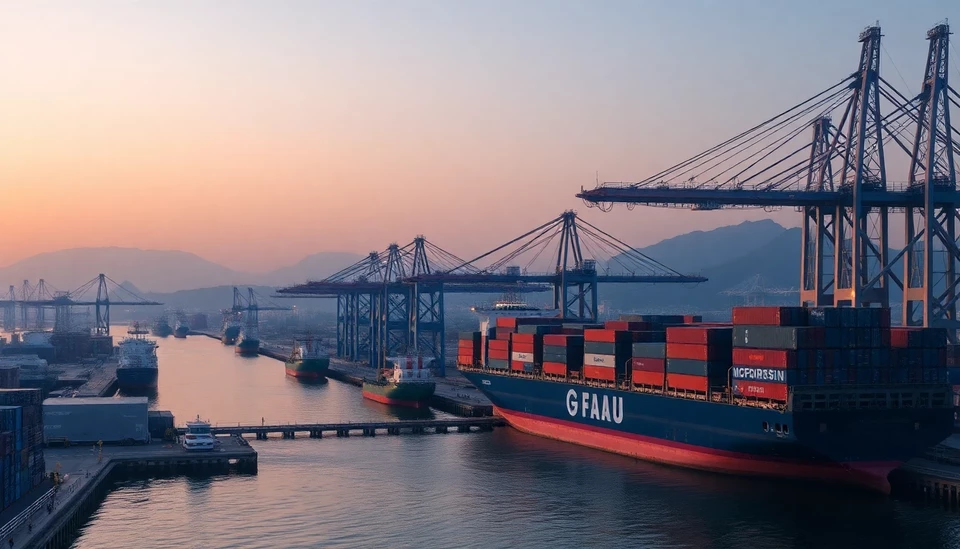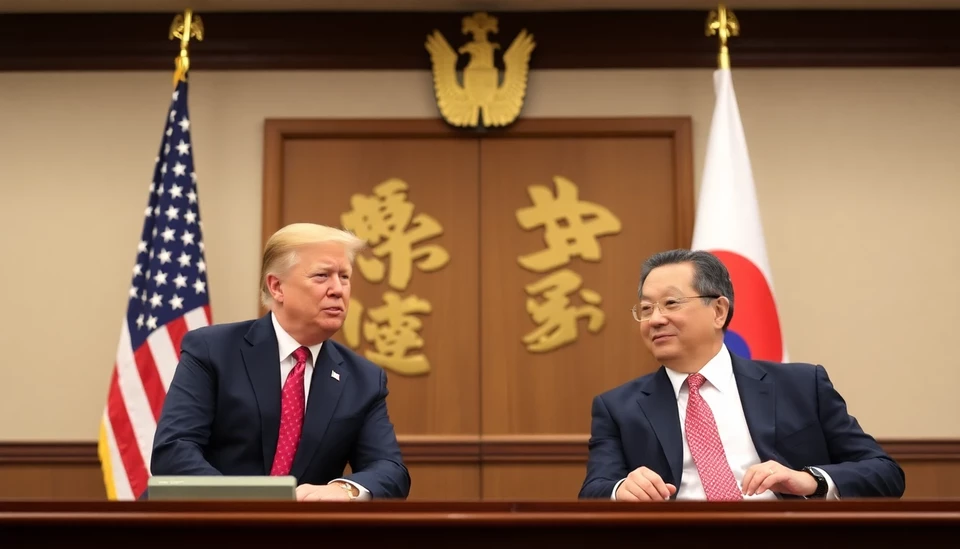
South Korea, a powerhouse in international trade, is witnessing a noticeable decline in its export sector, raising alarms about potential economic challenges ahead. In October, the country's exports experienced a sharp decrease of 9.5% compared to the same month the previous year, bringing the total export revenue down to approximately $40.3 billion. This decline marks the fifth consecutive month of negative growth, illustrating a concerning trend for one of Asia's leading economies.
Economists had anticipated a milder drop, forecasting a decline of only 8.6%. The sharp deviation from these expectations indicates that external factors may be exerting more pressure on South Korea's trade environment than previously thought. Notably, this downturn aligns with evolving global market conditions and shifts in demand, particularly from some of South Korea's largest trading partners.
One of the most significant contributors to this decline is the ongoing tensions in international trade, particularly stemming from relations with China and the United States. Concerns over China's economic recovery and its impact on the global supply chain continue to weigh heavily on South Korean exports, especially in key sectors such as semiconductors and petrochemicals.
In addition to geopolitical tensions, the recent strengthening of the South Korean won against the US dollar has made South Korean goods less competitively priced in international markets. This currency fluctuation, combined with high inflation rates and rising energy costs, further complicates the export landscape.
South Korean government officials and financial analysts are closely monitoring these trends, contemplating potential interventions to stabilize the economy. The Ministry of Trade, Industry, and Energy is reportedly considering various measures to support exporters, including an incentive program aimed at enhancing the competitiveness of key industrial sectors.
Despite these challenges, some sectors continue to show resilience. The biopharmaceutical and electric vehicle industries have remained relatively strong, contributing positively to the overall export figures, albeit insufficient to counterbalance the overall decline.
The South Korean government is optimistic about a potential rebound in exports as global demand picks up. However, many analysts suggest that the path to recovery will be fraught with uncertainties, especially if current geopolitical tensions persist.
In conclusion, while South Korea's export decline is significant and concerning, the country's economic fundamentals remain robust enough to navigate these turbulent waters. Continued adaptation and strategic policy responses will be essential for sustaining growth in the face of these formidable headwinds.
#SouthKorea #Exports #EconomicGrowth #TradeDeficits #GlobalEconomy #Semiconductors #BilateralRelations #IndustryInsights
Author: Laura Mitchell




